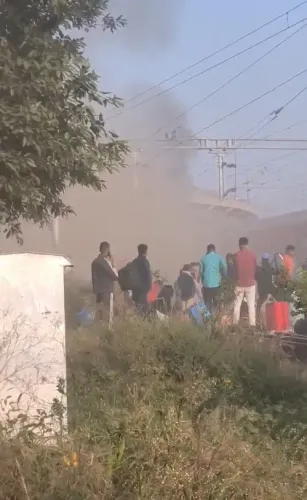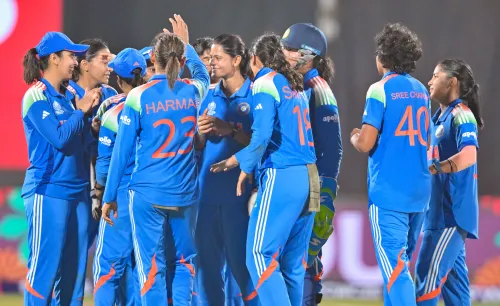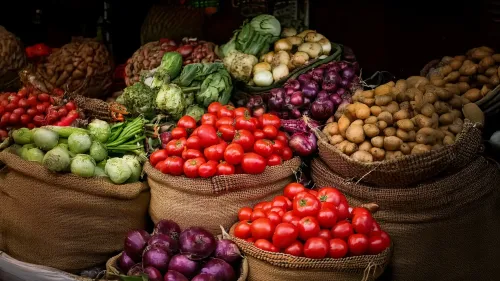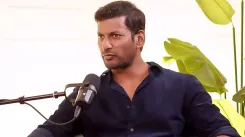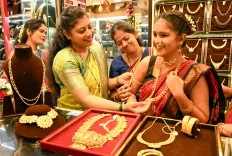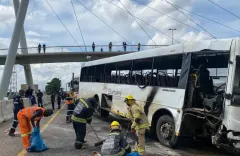What Sparks the Verbal Clash Over Minority Votes in West Bengal?

Synopsis
Key Takeaways
- Special Intensive Revision aims to ensure electoral integrity.
- Political parties leverage the process for their own agendas.
- Minority voters play a pivotal role in West Bengal's elections.
- Concerns over potential voter removals are escalating.
- Historical migrations influence current electoral dynamics.
New Delhi, Oct 17 (NationPress) As the Election Commission lays the foundation for a Special Intensive Revision (SIR) of electoral rolls in West Bengal, political factions in the state are interpreting the initiative in ways that align with their interests, especially with Assembly elections anticipated around March-April next year.
Allegations of targeting specific voter groups, particularly minorities, have emerged, similar to concerns raised in Bihar.
This comes despite no major issues being flagged in Bihar after the Election Commission released the draft electors list over two weeks ago.
In West Bengal, leaders from the ruling Trinamool Congress (TMC) have voiced similar worries, accusing the government of attempting a "backdoor entry for the National Register of Citizens (NRC)", even warning of potential violence in the state as a response.
The heated exchanges follow Union Minister Shantanu Thakur's remarks about the potential removal of approximately 1.2 crore "illegal voters" from the state's electoral list via the SIR.
Thakur, a Bharatiya Janata Party (BJP) Member of Parliament from West Bengal's Bangaon constituency, belongs to the Matua community, which is classified under the Scheduled Caste category.
This community has seen mass migrations to India pre- and post-1971, fleeing religious persecution in what became Bangladesh.
Thakur previously defeated his aunt, Mamata Thakur, who now serves in the Rajya Sabha representing the TMC.
The Minister emphasized that a thorough verification process, including door-to-door checks, is essential to identify fraudulent voters, as well as those who have passed away or returned to their home countries.
In another incident, BJP leader Arjun Singh reached out to the Election Commission regarding a Pakistani national residing in the Naihati Assembly constituency of West Bengal's North 24 Parganas district.
Reports indicate that the local TMC MLA, Sanat Dey, acknowledged that the woman, Saleha Khatoon (also known as Saleha Imran), indeed hails from Pakistan.
Saleha's husband, Md. Imran, confirmed that his wife is a Pakistani national yet holds voting rights in India.
Additionally, the Enforcement Directorate is investigating how a Pakistani individual named Azad Mullick obtained an EPIC card, having voted in the 2021 West Bengal Assembly elections and the upcoming 2024 Lok Sabha elections.
It is well-known that the political landscape in West Bengal is influenced significantly by a large religious minority population, particularly in border districts and urban areas.
Political entities carefully strategize their candidate choices, local alliances, and outreach efforts to secure this crucial voter base, as election results in many areas hinge on narrow margins where minority votes play a pivotal role.
The TMC has successfully built strong majorities by integrating welfare programs, local leadership, and targeted engagement with Muslim communities.
Historically, the Left Front also exerted local influence, designing initiatives to sway minority-dominated constituencies.
Muslims represent over 30 percent of the electorate in West Bengal.
These minority voters are predominantly found in districts adjacent to the Bangladesh border, such as Murshidabad, Malda, Uttar Dinajpur, Nadia, and others, where the Muslim population varies between 50 and 70 percent.
For instance, in Malda district, the last Census of India in 2011 noted Muslims making up over 51 percent of the population, with current estimates around 69 percent.
Earlier this year, violence erupted in Murshidabad following protests against the Waqf (Amendment) Act, 2025.
Protests escalated to violence, resulting in the vandalism of homes and displacing many Hindu families.
The BJP aims to diminish TMC's minority support by merging development narratives with assertive identity politics in other constituencies, while the Left-Congress alliance seeks to present itself as a secular alternative appealing to both minority and majority voters.


